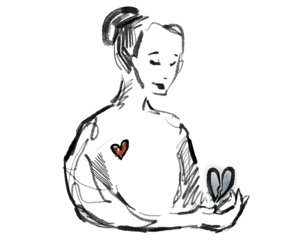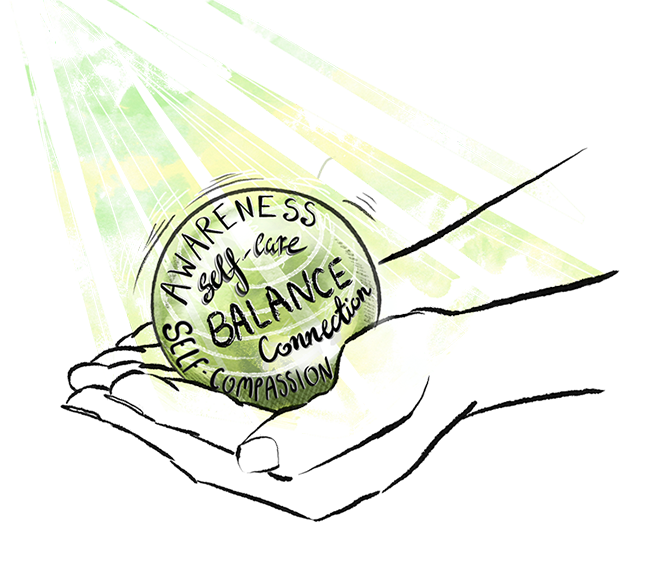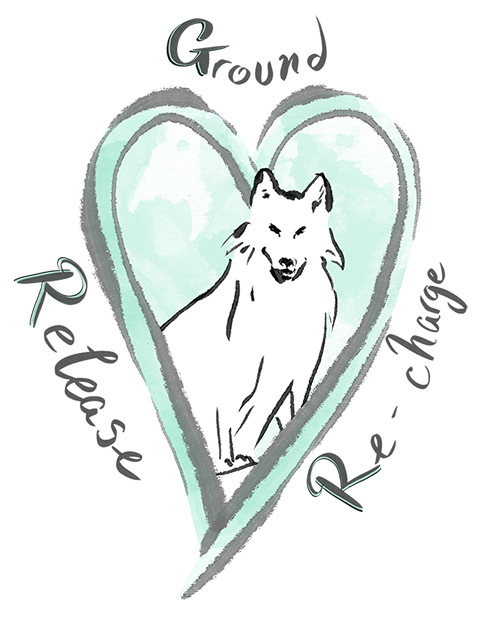Three strands of active self-care
Self-care can also be seen in terms of the energy that we feel in our body. This is linked to the biochemicals being constantly generated by what we think, feel and do… Noticing the shifts and changes in our body energy throughout the day, helps to be more aware of three pro-active ways of managing our body energy by doing the activities which can help to:
- Ground our energy
- Release negative energy
- Re-charge positive energy
These can be done in the following ways:
Grounding the body energy is feeling your feet flat on the ground; noticing your breathing and body sensations and allowing whatever is there.
Releasing the negative body energy caused by ‘fight or flight’ chemicals generated by stress, can be done through many different everyday activities, anything vigorously aerobic like sports, singing and laughing!
Re-charging positive body energy also comes from everyday activities, but those which generate body chemicals like Oxytocin, from being with loved ones; and serotonin from having play & creativity; being out in Nature and doing whatever strengthens a sense of safety, belonging and hope.
For more details on the four cornerstones and these energy activities, do have a look at the two short VODs on this page






